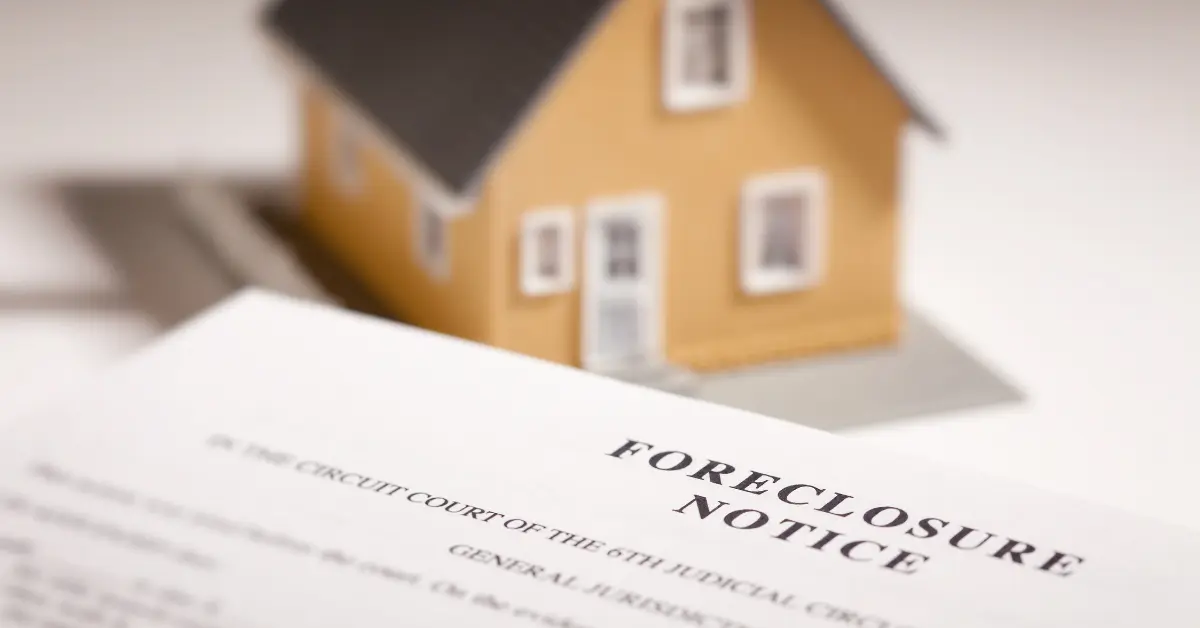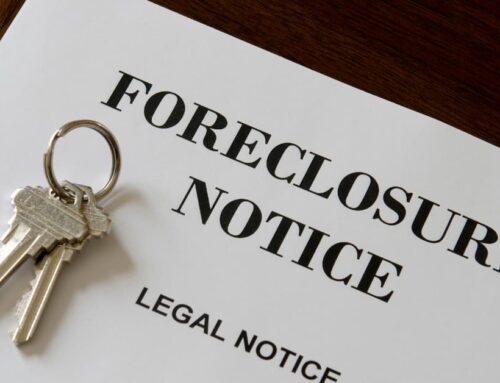Facing the possibility of foreclosure can feel overwhelming — but understanding your legal rights is the first step to protecting your home. In Texas, specifically, homeowners have legal rights that can help delay or even prevent foreclosure proceedings entirely, granting you the relief you’ve been seeking.
Here at Kelly Legal Group, we’re walking you through key mortgage foreclosure defense strategies, legal protections, and the steps that our professionals can help you take to safeguard your property and secure your financial future.
Key Takeaways:
- Understanding Mortgage Foreclosure Defense: Legal strategies, such as contesting a lender’s actions or identifying errors, can help stop or delay foreclosure.
- Proving Lender Mistakes: Errors in loan documentation or improper lender actions can invalidate a foreclosure and protect your home.
- Challenging the Mortgage: Predatory or questionable lending practices can be grounds for challenging the validity of a mortgage.
- Filing for Bankruptcy: Chapter 13 bankruptcy can temporarily halt foreclosure through an automatic stay, giving homeowners time to reorganize their debt.
- Loan Modifications and Loss Mitigation: Homeowners can request modified loan terms or engage in loss mitigation programs to avoid foreclosure.
- Working With a Foreclosure Attorney: A skilled foreclosure defense attorney can protect your rights, challenge lender actions, and negotiate better terms on your behalf.
- Alternative Solutions to Foreclosure: Short sales, deeds in lieu of foreclosure, and Texas homeowner assistance programs offer alternatives to losing your home. Know your rights post-foreclosure to discover more options..
What is Mortgage Foreclosure Defense?
Mortgage foreclosure defense involves legal strategies designed to stop or delay foreclosure proceedings. These strategies can include options like contesting the lender’s right to foreclose or even identifying errors in the foreclosure paperwork.
A strong foreclosure defense is key to protecting your legal rights and gaining time to explore various solutions for your financial complications. Without a defense against foreclosure, you risk losing your property without fully understanding the scope of options you have. But, when you defend yourself, you’re able to fight for a fair process.
A successful foreclosure defense can look like anything from a repayment plan to even negotiating the sale of your home on more favorable terms. In other cases, it may include loan modifications or the dismissal of the case entirely. Each one of these outcomes can help you avoid foreclosure and ensure your financial future looks a little brighter.
Understanding Foreclosure Laws in Texas
Understanding the foreclosure laws in Texas is key to having a successful foreclosure defense. Let’s take a look at an overview of the TX foreclosure process, as well as what rights you have as a homeowner during this ordeal.
An Overview of the Texas Foreclosure Process
First, it’s important to note that Texas follows both judicial and non-judicial foreclosure processes.
Judicial foreclosures involve the courts, where the lender must sue the homeowner to obtain foreclosure approval. On the other hand, non-judicial foreclosures, the more common process in Texas, allow lenders to foreclose without court intervention, provided they follow specific legal steps.
The timeline for non-judicial foreclosure tends to be quick, often taking as little as 60 days from the first missed payment to the property’s auction.
Homeowner Rights During Foreclosure
Remember: homeowners facing foreclosure in Texas still have legal rights.
Borrowers must receive proper notice, including a notice of default and a 21-day notice of sale. During this time, homeowners can negotiate with lenders, seek loan modifications, or reinstate the loan by paying missed amounts.
Texas laws can also protect homeowners from unfair foreclosure practices, such as predatory lending or improper notifications. And, when you know these protections, you can more easily take control of your situation and explore all available options to save your home.
Common Mortgage Foreclosure Defense Strategies in Texas
Mortgage foreclosure defense can be hard to comprehend if you aren’t sure what the strategies might look like. Fortunately, there are several legal strategies available to defend against losing your property. Let’s take a look at four common approaches.
Providing Lender Mistakes or Misconduct
Plain and simple, errors in loan documentation or improper actions by the lender can be powerful defenses against foreclosure.
If there are discrepancies in loan terms, missed notifications, or violations of federal mortgage laws, the foreclosure may be invalidated.
Some specific examples of lender errors can be improper calculations of loan payments, failure to provide mandatory notices, or proceeding with foreclosure without following Texas state requirements.
Challenging the Validity of the Mortgage
Another common defense involves taking a look at the validity of the mortgage itself.
Predatory lending practices, such as unfair terms or misrepresentation during the loan process, can provide grounds for challenging the foreclosure. If it can be shown that the lender engaged in deceptive practices or did not fully explain the terms, this could invalidate the foreclosure action.
Filing for Bankruptcy as a Defense
Of course, you always have the option of filing for Chapter 13 bankruptcy, as this can immediately halt foreclosure proceedings through something called an automatic stay. This automatic stay is a legal tool that temporarily prevents creditors from pursuing collection actions — and this includes foreclosure.
Thus, filing for bankruptcy allows you to reorganize your debt and create a repayment plan.
Loss Mitigation and Loan Modification
Finally, you can request loan modifications or engage in loss mitigation programs to avoid foreclosure. These programs may offer more affordable payment terms or other alternatives to losing your home.
A foreclosure defense attorney can work on behalf of you, the homeowner, to negotiate better terms with the lender, including extended repayment periods or reduced interest rates.
Working With a Foreclosure Defense Attorney in Texas
It’s no secret that facing foreclosure is a daunting, stressful experience for any homeowner. Thankfully, working with a foreclosure defense attorney like the professionals at Kelly Legal Group can make all the difference in protecting your home and exploring your full legal options.
In Texas, where foreclosure timelines can move quite quickly, you want to act even quicker. Thus, having a skilled attorney on your side ensures your rights are defended effectively and efficiently.
Why Hire a Foreclosure Defense Attorney?
A foreclosure defense attorney is experienced in navigating the complex legal system and can identify the best strategies to defend against foreclosure. They can help homeowners like you understand your rights, review loan documents for errors, and negotiate directly with lenders.
Hiring an attorney also gives you access to legal expertise in challenging unfair or predatory lending practices, as well as stopping improper foreclosure procedures.
Steps an Attorney Can Take to Defend Your Home
In case you’re curious, a foreclosure defense attorney can take several important steps to defend your home.
They will first assess the specifics of your case, including reviewing all loan documents and foreclosure notices.
Attorneys may challenge the validity of the foreclosure based on errors, violations of Texas law, or lender misconduct. They can also file for Chapter 13 bankruptcy to halt the foreclosure process or negotiate a loan modification with more favorable terms.
No matter what, throughout the process, your Kelly Legal Group attorney will ensure you have the best possible legal representation to protect your home and financial future.
Explore more options in our blog on the Top Strategies on How to Stop Foreclosure in Texas.
Alternative Solutions to Foreclosure
Before we let you go, let’s quickly go over some alternative solutions to foreclosure to help give you some brighter insight into your financial homeownership future.
Short Sale or Deed in Lieu of Foreclosure
A short sale allows homeowners to sell their property for less than what they owe on the mortgage, with the lender’s approval. This option can prevent a foreclosure from being recorded on your credit report while helping the lender recover a portion of the loan.
Another alternative is a deed in lieu of foreclosure, where the homeowner voluntarily transfers the property title back to the lender in exchange for debt forgiveness.
While both options still result in losing your home, they can be less harmful to your credit than a full foreclosure.
Texas Homeowner Assistance Programs
Additionally, Texas offers various assistance programs designed to help homeowners avoid foreclosure.
These programs provide financial support for mortgage payments, property taxes, and utilities for those struggling due to economic hardship. Programs such as the Texas Homeowner Assistance Fund offer grants and relief to help homeowners catch up on missed payments or modify their loans.
Protect Your Home With a Strong Foreclosure Defense
If you happen to be facing foreclosure in Texas, having an experienced legal team on your side is crucial. The Kelly Legal Group is dedicated to protecting your home and your rights during this challenging time.
Our skilled mortgage foreclosure defense attorneys will work with you to explore all legal options and help you find the best solution for your situation. Contact Kelly Legal Group today to schedule a consultation and safeguard your future.






